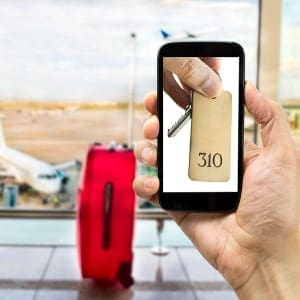Covid Crisis has hit the hospitality & tourism industry the hardest and it will take a long time for the dust to settle. Leisure hotels will take the hardest beating as fear and panic will infect the itineraries of modern travellers.

Business hotels may show some intermittent signs of recovery, but things will probably never be the same. Most companies (large and small) have tasted blood with video conferencing and universal acceptance of work from home model. The world seems to be preparing itself for the worst economic recession accompanied by unemployment levels not seen since Great Depression. This will be further worsened by de-globalisation and change in geo-political equations with countries turning more inwards and hostile, thereby further reducing demand for travel.
How do hotel owners react to this impending tsunami? We can either choose to accept the doomsday scenario and surrender to the invisible enemy, or we can throw down the gauntlet and take the bull by the horns. If we do choose to fight, we must first need to find the courage and self-belief to reinvent ourselves and think outside the box. We may have to accept fundamental shifts and structural changes to the industry and question assumptions that defy conventional wisdom.
With every calamity comes a moment of opportunity, and those who are able to swim against the tide will reach the shores safe. While I do not claim to be able to predict the future or provide a fool-proof playbook on how to get out of this crisis, but I will try to share some ideas on how hotel owners can weather the storm and try to keep their heads above water.
The fundamental tectonic shift that will emerge for hotels out of this crisis will be around three pillars: efficiency, automation, & technology. One way to think of hotels is to compare them to large mega-factories with machines and workers- working tirelessly in shifts to produce output. Just like how concepts like ‘lean manufacturing’ and ‘just in time production’ fundamentally changed the manufacturing industry, hotels may soon have our own ‘Toyota’ moment. Hotels will need to adopt similar concepts that focus on revenue and cost efficiencies because profit can no longer be taken for granted. Fixed costs will need to be converted to variable costs to shed our extra flab thereby reducing spare inventory and wastages. We will need to use an ideal mix of machines, manpower, technology, and automation to maximize our output while minimizing input, without compromising on guest satisfaction. We will need to take hard decisions about which business units to continue and which ones to pull back from.
Hotels will carefully need to plan its manpower strategy keeping in mind automation possibilities in every department. Staff to room ratios will see a downward trend and there will be emphasis on achieving ‘more’ with ‘less’. Reservations and back-office teams that perform repetitive clerical tasks can be minimized by introducing automated reservation systems and chatbots that are linked to integrated PMS and marketing platforms. The large clunky IT departments can be replaced by centralized cloud-based PMS & CRS systems with a 2 way integration with marketing & distribution systems reducing the need for periodic backup and maintenance. Core functions like pricing, revenue management and online distribution can be centralized & automated using modern sophisticated systems, which will lead to increase in productivity & yields, while reduction in manual efforts. Large sales & marketing teams that service corporates and travel agents can be trimmed down by introducing B2B booking platforms where suppliers and customers can transact directly.
Many hotels may need to revaluate ancillary business units like restaurant, bar, spa, and gym which have a high operating cost and fail the profitability litmus test. It may be prudent to either outsource these areas or completely remove them from the product portfolio. Guest enhancement functions like room service, concierge services, travel desk and checkin-checkout can be automated using smartphones, tablets, and AI based technology to increase efficiency. Energy costs like electricity and water can be minimized using IOT devices and energy saving instruments that run on ‘use as you need’ basis instead of large centralized units with high fixed costs. Hotels will need to differentiate from their competition by incentivizing their staff to maximize reviews & ratings on online platforms, by using modern tools of reviews & reputation management.
The increase in online business will continue to be beneficial for hotels because it will replace fixed acquisition costs (large sales teams) with variable costs like digital marketing. Even though OTAs will continue to command a lion’s share of business, hotels should focus their efforts on direct booking channels including own websites and booking engine to reduce their distribution costs. Incessant discounting schemes introduced by some OTAs to grab market share may reduce because short term valuation boost will no longer be considered a metric for success. This may bring about some maturity and fair distribution of market share across online channels. The new emerging funded aggregators who have recently shot to limelight will have to make a hard choice to either grow sustainably by reducing unnecessary expenses (large teams and minimum guarantees) or be relegated to obscurity because of lack of funding options that keep them afloat.
Banks, PE and VC funds may chase projects that are more sustainable, scalable, and profitable rather than outlandish bets that follow a herd mentality of super-natural growth. Asset light models like revenue share & management contracts will be more popular for new projects than outright purchase or lease models. Due to reduction of profitability in the industry, supply will not flood the market as new projects will either be shelved or be converted to other less risky asset classes. Hotels that are able to survive the crisis may come out as winners because they will be the last men standing when the crisis is over and demand returns.
Covid-19 will be a watershed moment for the hospitality industry. Instead of writing our own obituaries, we should use this opportunity to regroup, rethink, and reset. There are always winners that emerge out of every crisis, and it is our time to ‘cross the rubicon’ and script our own futures. Our spirit, thoughts and actions will determine whether the darkest hour is behind us and whether we can emerge out of this crisis fully shattered or just bruised, ready to pick up the arms again.
About the Author
Siddharth Goenka – Founder & CEO, Aiosell Technologies and Managing Director, Octave Hotels

Siddharth is an MBA from Indian School of Business, Hyderabad and Computer Engineer from Purdue University, USA. He has grown Octave Hotels from 1 hotel in 2012 to a chain of 9 hotels across Bangalore. He has leveraged his experience in running hotels along with his computer science background to launch Aiosell Technologies, an Automated Pricing, Revenue Management, and All-in-One Hotel System that can help hotels increase revenues & ADRs.



















